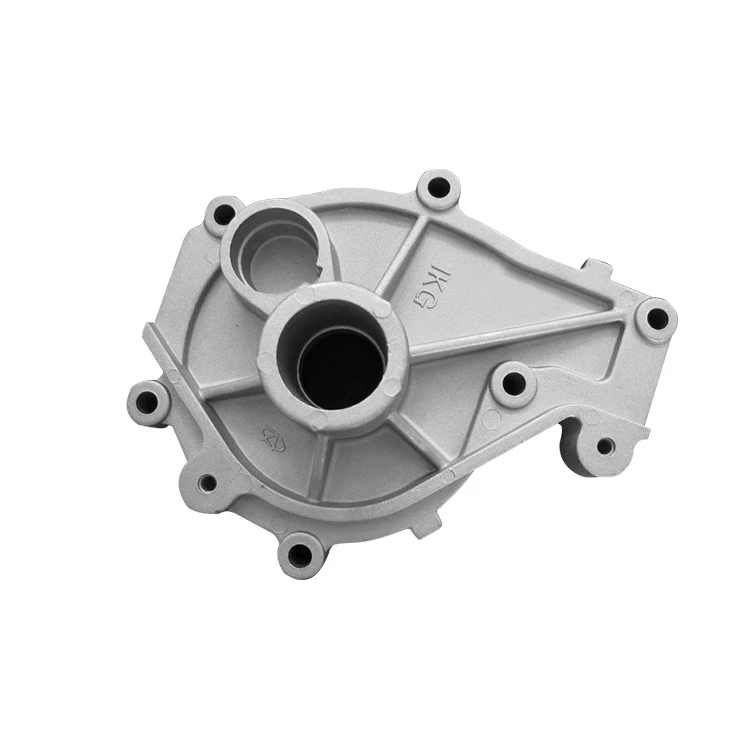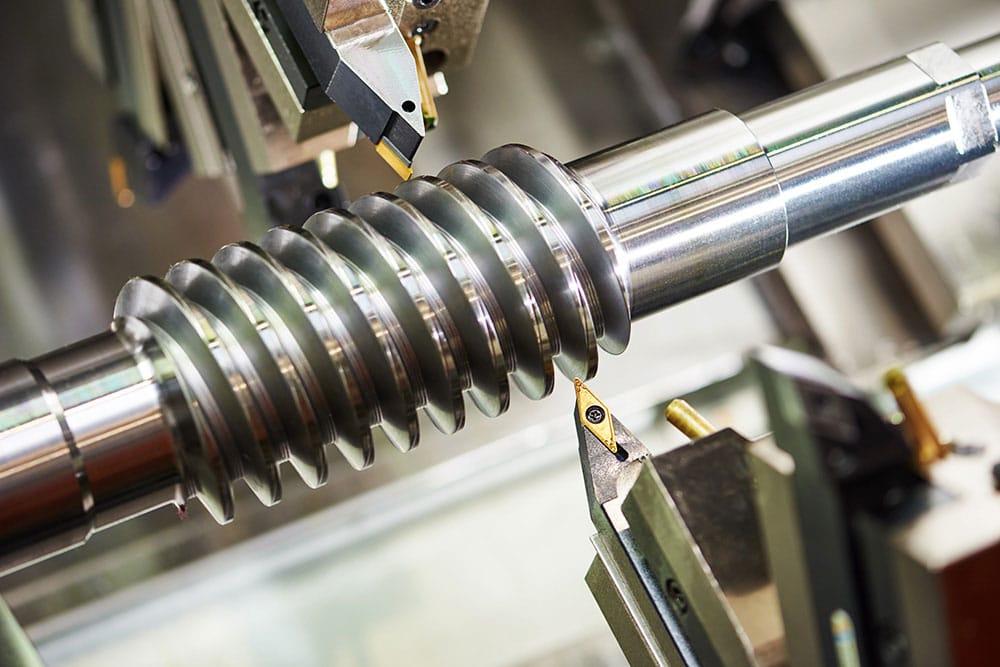Discover how an Aluminum Casting Company delivers accuracy across industries
Wiki Article
Just How Light Weight Aluminum Spreading Adds To Reliable Production Solutions
Light weight aluminum casting plays a necessary role in contemporary manufacturing. Its light-weight nature and rust resistance make it a preferred choice for different markets. Methods such as die spreading and sand casting enable the production of complex components with minimal waste. The integration of automation additional boosts manufacturing performance. Nevertheless, the effects of these innovations prolong past plain productivity. Comprehending the more comprehensive influence reveals significant insights into the future of productionThe Benefits of Light Weight Aluminum in Manufacturing
Although different steels are made use of in manufacturing, light weight aluminum attracts attention as a result of its unique properties that boost manufacturing performance and product efficiency. Its lightweight nature especially minimizes transportation costs and energy needs in numerous applications. Aluminum's excellent corrosion resistance warranties long life and toughness, decreasing the requirement for frequent replacements and upkeep. This metal can be easily formed and shaped, allowing for functional style alternatives that fulfill details market requirements. Additionally, light weight aluminum exhibits premium thermal and electric conductivity, making it a perfect choice for applications requiring reliable warmth dissipation and electric administration. The recyclability of light weight aluminum likewise plays a crucial duty in lasting production techniques, as it can be recycled without losing its inherent residential or commercial properties. In general, the advantages of light weight aluminum in making lead to set you back savings, boosted item long life, and a lowered environmental impact, making it a favored material in various industries.Trick Aluminum Spreading Techniques
Aluminum spreading techniques are vital for creating premium parts in various manufacturing procedures. The key methods consist of sand casting, pass away spreading, and investment casting. Sand spreading entails developing a mold from sand, which enables huge parts and complicated shapes. This method is typically favored for its cost-effectiveness and adaptability. Die spreading, on the various other hand, utilizes high-pressure to inject molten aluminum right into steel molds, resulting in precise, consistent parts appropriate for high-volume production. Financial investment spreading supplies remarkable surface area finish and intricate detail by making use of a wax pattern that is dissolved to form the mold. Each of these techniques has details applications and benefits, permitting suppliers to select one of the most suitable technique based upon factors like production intricacy, product, and quantity specifications. By understanding these essential techniques, makers can boost their manufacturing performance and guarantee the honesty of their light weight aluminum parts.Effect On Automotive Industry
As the automotive sector significantly focuses on light-weight products to boost gas effectiveness and performance, aluminum casting has actually arised as a vital solution. This production procedure allows automakers to produce intricate components with lowered weight without endangering architectural integrity. By using aluminum spreading, manufacturers can produce parts such as engine blocks, transmission housings, and suspension elements that are not only lighter however also show excellent thermal conductivity and deterioration resistance.In addition, the adaptability of aluminum spreading methods makes it possible for the production of elaborate styles, facilitating development in car looks and functionality. As lorries become much more technologically progressed, the capacity to incorporate features like advanced safety systems and electrical drivetrains becomes crucial.

Aerospace Applications of Light Weight Aluminum Casting
Light weight aluminum spreading plays a vital function in aerospace applications by enabling the production of lightweight architectural elements that improve fuel effectiveness. Additionally, the accuracy of aluminum casting allows for the creation of detailed engine parts, which are crucial for peak efficiency and reliability. This combination of lightweight products and exact design placements light weight aluminum casting as a crucial technology in the aerospace market.Light-weight Structural Elements
In the pursuit for enhanced performance and efficiency in aerospace applications, light-weight structural elements have actually ended up being increasingly vital. Aluminum spreading plays a pivotal function in this undertaking, supplying producers with the capacity to generate components that are both light-weight and solid. The reduced thickness of light weight aluminum enables considerable weight decreases without endangering structural honesty, which is essential for airplane efficiency and fuel efficiency. In addition, aluminum spreadings can be crafted to meet specific layout needs, allowing the development of complicated geometries that conventional production techniques may battle to attain. This convenience not just improves production processes however also adds to total cost financial savings. As the aerospace market proceeds to stress sustainability, the demand for light-weight aluminum parts is anticipated to increase, additionally advancing development in manufacturing.Accuracy Engine Parts
Producers increasingly rely on aluminum spreading to produce accuracy engine parts for aerospace applications, driven by the material's unique properties. Light weight aluminum's lightweight nature considerably lowers overall aircraft weight, boosting fuel effectiveness and performance. Its outstanding corrosion resistance warranties longevity in harsh atmospheres, making it suitable for critical engine components. In addition, light weight aluminum casting permits detailed layouts and tight resistances, necessary for optimizing engine performance and dependability. The spreading process additionally sustains automation, allowing makers to meet high demand while preserving top quality requirements. As aerospace technology remains to advance, the role of light weight aluminum spreading in creating precision engine parts will certainly be crucial in attaining greater performance and technology in aircraft layout and functionality.Sustainability and Environmental Benefits
The growing focus on sustainability in manufacturing has placed aluminum casting as a leading option for ecologically conscious production. This process utilizes recycled aluminum, which substantially lowers energy intake contrasted to main light weight aluminum production. By leveraging scrap metal, makers can decrease their carbon footprint and decrease waste, lining up with global sustainability goals.Additionally, light weight aluminum spreading produces fewer unsafe exhausts, contributing to a cleaner setting. The light-weight nature of aluminum also boosts gas efficiency in transportation applications, better advertising environmentally friendly techniques.
Furthermore, the durability and rust resistance of light weight aluminum bring about longer product life-spans, reducing the demand for frequent replacements and saving resources. As markets significantly focus on lasting selections, light weight aluminum spreading attracts attention as an ingenious method that not only fulfills production needs but also sustains ecological stewardship. This dedication to sustainability settings light weight aluminum spreading as a pivotal gamer in the change towards a greener manufacturing landscape.
Price Efficiency in Manufacturing
Price effectiveness is a substantial benefit of light weight aluminum casting, enhancing its sustainability benefits - Aluminum Foundry. The process of aluminum spreading enables the manufacturing of complex shapes with marginal waste, which is particularly crucial in an affordable manufacturing environment. Utilizing light weight aluminum reduces power prices, as it has a lower melting point contrasted to other steels, leading to minimized power consumption during productionAdditionally, light weight aluminum's light-weight properties add to reduce shipping and dealing with expenses, further boosting overall price effectiveness. The durability and rust resistance of aluminum actors items likewise suggest that they require much less maintenance and replacement with time, causing long-lasting financial savings for makers.
Advancements in casting modern technologies, such as enhanced mold layouts and automation, have structured production processes, decreasing labor expenses and enhancing outcome effectiveness. Generally, expense effectiveness in aluminum casting plays an essential function in maximizing production operations and sustaining affordable rates methods.
Future Patterns in Aluminum Casting
The future of light weight aluminum spreading is increasingly formed by advancements in automation and lasting product advancements. Automation innovations are anticipated to boost performance and accuracy in the casting process, while lasting methods intend to decrease environmental impact. Together, these fads assure to redefine manufacturing criteria and methods within the light weight aluminum spreading sector.Automation in Aluminum Spreading
Embracing automation is transforming light weight aluminum casting procedures, leading the way for improved performance and accuracy. Automated systems streamline production by lessening human intervention, decreasing mistakes, and increasing throughput. Technologies such as robot arms and computer mathematical control (CNC) devices allow for exact and constant shaping of aluminum parts. Furthermore, wise sensors keep track of different specifications in real time, ensuring suitable conditions throughout the casting process. This combination of automation not just shortens lead times but likewise enhances item high quality by preserving tighter tolerances. As suppliers significantly embrace these sophisticated modern technologies, the aluminum casting sector is readied to experience significant renovations in functional efficiency, cost-effectiveness, and competition in the international market.Sustainable Product Innovations

Regularly Asked Questions
What Sorts Of Light Weight Aluminum Alloys Are Generally Used in Spreading?
Typically used light weight aluminum alloys in casting include 356, 380, and 413. These alloys are preferred for their outstanding fluidness, strength, and deterioration resistance, making them ideal for a range of commercial applications.How Does Light Weight Aluminum Casting Compare to Other Steel Casting Approaches?
Light weight aluminum casting normally offers lower weight, superior rust resistance, and much better thermal conductivity contrasted to various other steel spreading methods. Furthermore, it enables elaborate designs and faster manufacturing cycles, boosting total manufacturing effectiveness and efficiency.What Industries Benefit Most From Light Weight Aluminum Spreading?
The automobile, aerospace, and electronic devices sectors profit most from aluminum spreading. These industries use its light-weight, corrosion-resistant buildings to boost efficiency, minimize fuel usage, and enhance general item effectiveness, making light weight aluminum casting increasingly vital.Exist Specific Design Limitations With Aluminum Spreading?
Yes, light weight aluminum casting has design restrictions, including restrictions on wall surface density, complicated geometry obstacles, and possible concerns with attaining tight tolerances (Precision aluminum casting). These factors can affect the overall stamina and functionality of the final itemHow Is High Quality Control Maintained in Aluminum Spreading Processes?
Quality control in light weight aluminum spreading procedures is preserved with rigorous evaluations, adherence to standardized procedures, and the usage of sophisticated modern technologies. Routine monitoring assurances dimensional precision, surface area integrity, and product consistency throughout manufacturing, promoting total integrity.As the automotive sector significantly prioritizes light-weight materials to boost fuel efficiency and efficiency, light weight aluminum casting click here has actually emerged as an essential service. Light weight aluminum casting plays a vital function in aerospace applications by allowing the production of light-weight structural components that enhance gas efficiency. Expense effectiveness is a substantial benefit of light weight aluminum spreading, complementing its sustainability benefits. Embracing automation is changing light weight aluminum casting processes, paving the means for improved efficiency and precision. Recycled aluminum use has gotten traction, considerably lowering energy consumption compared to key light weight aluminum production.
Report this wiki page